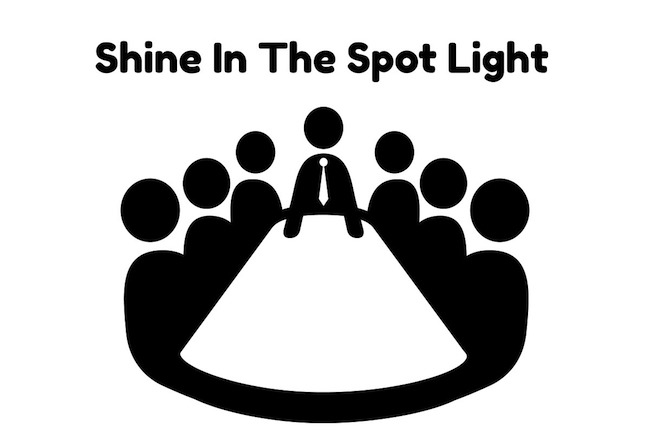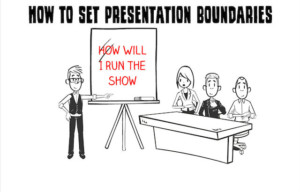You get evaluated by management and peers every time you speak in front of a group.
To win and to do well, you have to know the qualities they are looking for and the criteria for evaluation.
That’s why when I facilitate executive retreats on communication skills, I start by having the executives write-up characteristics of good presenters based on their perception.
I used to think that each organization had different criteria based on their culture. However, after working with hundreds of executive teams, I realized there is a common criterion that surfaces all the time.
I analyzed the results I got over the years. Below, I have summarized the top 8 results into a list of what composes a great presenter in any corporate setting.
( I will be doing more research in this area and will be posting results in future posts, so make sure you subscribe to our list to stay in the loop).
8 Qualities of Great Speakers (real data)

1- Confidence
To be an interesting and believable presenter, you need to have confidence. The fortunate part is that confidence can be built and developed over time. I work on my confidence as a presenter on a daily basis, and I will keep working on it forever. Building confidence is like building muscle; you need to work on it with discipline for it to grow and develop.
2- Energy (Expression)
Energy is contagious. You go to see dynamic and animated speakers because they energize and inspire you. You don’t want to rob your audience of your energy. You want to infect them and to spread your energy like wildfire.
If you are not a dynamic speaker, then that is just your conditioning and your self-image. Start by taking acting and improvisation classes and watch your expressional ability skyrocket in a natural “non-contrived” way.
3- Clarity
No one wants to hear a rambling speaker. The moment you start rambling people will begin to tune you out.
Have clarity with it comes to your ideas, opinions, philosophy, and beliefs. Once you are clear and focused, start by communicating your thoughts while continuing to modify and clarify them even more (use the same process standup comics use to polish and shine their content).
Remember that clarity comes from preparation.
4- Interactivity
Public speaking is a type of dance. Just like Salsa and Tango, public speaking requires that you interact with your partner.
In the case of public speaking, your partner is the audience. Ask them questions, interact with them, and tease them; don’t just stand in front of them.
Here are two articles on interactivity you might find useful:
How To Make a Presentation Interactive and Fun
A Simple Interactive Game You Can Use In Your Next Presentation
5- Entertaining (funny)
I know what you are thinking. You can do everything on this list so far, but you can’t-do this one. Let me guess – you are not funny!
I hear this all the time, and I know that you are funny even if I have never met you. Everyone is funny. You just need to bring it out. Take an improv class or a stand-up comedy class if you have to.
6- Content Rich
Content is king. And yes, it is still the king in this case.
To be memorable, you need to have strong content.
Immerse yourself in your industry and field, and learn more than anybody you know about it. Share your insights in your presentations. Teach your audience something they have not heard before.
7- Dress the Part
We live in a materialistic society. Therefore, you will be judged initially by how you look and what you are wearing.
You can say that this is not fair or that this is not true, but survey after survey in my classes show that people put weight into this.
So dress the part at least for the first impression.
8- Powerpoint Mastery
People are hungry to hear leaders speak. The moment you allow a slide deck control the flow of your presentation, you are not in the lead anymore.
Take control of your slides by leading your presentation and your audience. You should be able to deliver your presentation without any slides if you had to (regardless of the content). I recommend practicing your presentation without slides at least once.
Conclusion
Now you know how executives and audience members evaluate you as a speaker. The criterion is simple and is achievable by anyone who is willing to put in some work.
Going forward:
Did you know that we offer complimentary classes and consultations to help you evaluate what you need to build your skills and confidence?


